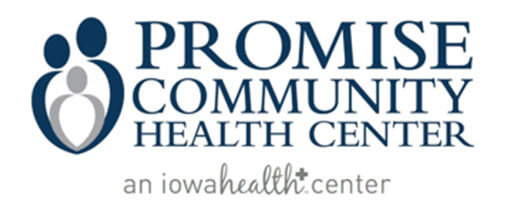
May is National Blood Pressure month, and here at Promise Community Health Center, we work with patients all year to identify, diagnosis, and treat high blood pressure. Our providers, nurses, medical assistants, health coaches, and pharmacist can work with you to treat your blood pressure with medication and positive lifestyle modifications.


WHAT IS BLOOD PRESSURE?
Blood pressure is defined as the force of circulating blood on the walls of arteries and is reported as systolic blood pressure over diastolic blood pressure (systolic/diastolic mmHg). Systolic blood pressure is measured when blood pressure is highest, and diastolic blood pressure is measured when blood pressure is lowest. Normal blood pressure is defined as systolic <120 mmHg and diastolic <80 mmHg. Hypertension, or high blood pressure, is defined as systolic blood pressure is greater than 130 mmHg and diastolic blood pressure is greater than 80 mmHg. Therefore, a diagnosis of hypertension means that your blood pressure is higher than normal.
WHAT ARE RISK FACTORS FOR HYPERTENSION (HIGH BLOOD PRESSURE)?
Risk factors associated with the development of high blood pressure include unhealthy diet, physical inactivity, obesity, alcohol use, tobacco use, age, family history, and race. Risk factors that cannot be changed are defined as non-modifiable risk factors and include age, family history, and race. Other risk factors, like high-sodium diet and physical activity, are defined as modifiable risk factors and can be changed. Additionally, some medications can contribute to the development of high blood pressure. Talk to your medical provider or pharmacist if you have any questions regarding your medications and high blood pressure.


WHAT ARE COMPLICATIONS OF HYPERTENSION?
Hypertension is associated with a greater risk of cardiovascular disease and as blood pressure increases, the risk of a cardiovascular event increases. When blood pressure is high, arteries become less elastic and the flow of oxygen and blood and heart is reduced, causing a heart attack. Alternatively, the supply of blood and oxygen to the brain can be blocked or high pressure can cause arteries to burst, resulting in a stroke. Additionally, people with high blood pressure are at increased risk for developing chronic kidney disease. Therefore, it is important to treat high blood pressure to reduce the risk of adverse effects and long-term complications.
WHAT IS THE TREATMENT FOR HYPERTENSION?
Treatment of hypertension can occur through medication therapy as well as positive lifestyle modifications. Lifestyle modifications that can result in improvement in of blood pressure include dietary salt restriction, weight loss, exercise, and limited alcohol intake. For some, medication becomes necessary to help lower blood pressure. Your provider will work with you to determine which medication option is best for you and will continue to monitor your response to the medication. Therefore, it is important to keep any follow-up appointments and communicate any questions that you may have with your healthcare provider. It is also important to continue to implement positive lifestyle modifications and continue to focus on positive changes that you can make on modifiable risk factors.


Sources:
- National Cancer Institute. NCI Dictionary of Cancer Terms: Blood Pressure. https://www.cancer.gov/publications/dictionaries/cancer-terms/def/blood-pressure.
- High Blood Pressure Symptoms and Causes. Centers for Disease Control and Prevention Website. Updated May 19, 2020. Accessed May 20, 2020. https://www.cdc.gov/bloodpressure/about.htm
- Know Your Risk Factors for High Blood Pressure. Center for Disease Control and Prevention Website. Reviewed February 24, 2020. Accessed May 21, 2020. https://www.cdc.gov/bloodpressure/risk_factors.htm
- Prevent and Manage High Blood Pressure. Center for Disease Control and Prevention Website. Reviewed January 28, 2020. Accessed May 21, 2020. https://www.cdc.gov/bloodpressure/prevent_manage.htm

